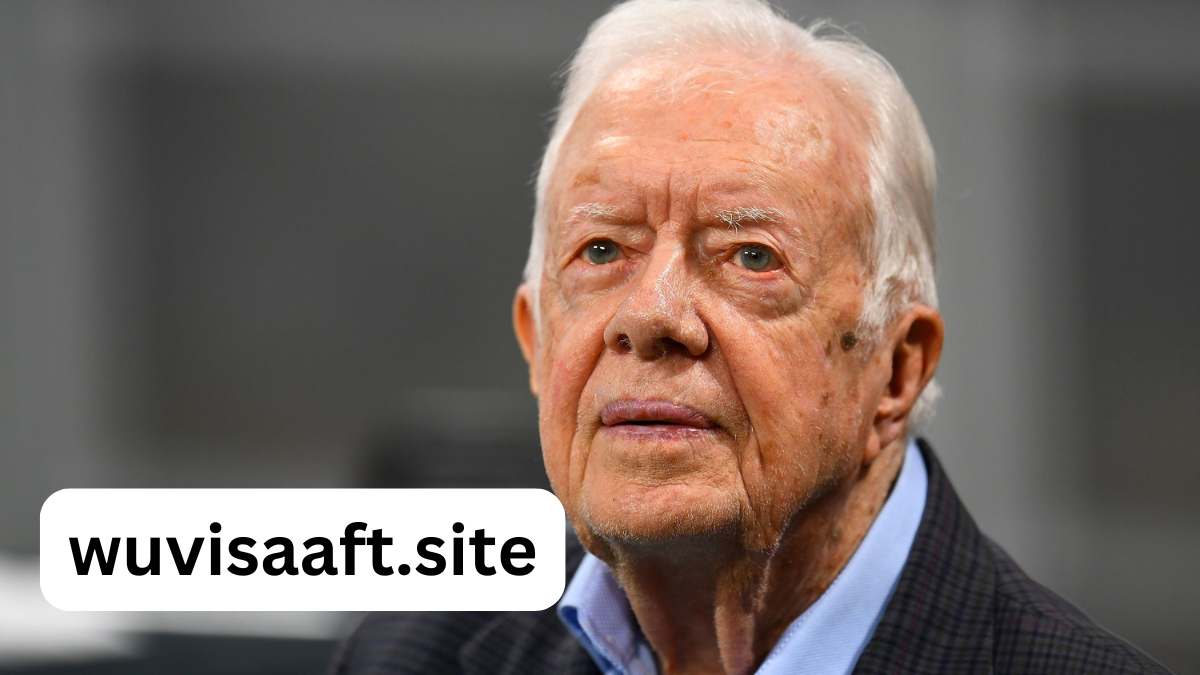Jimmy Carter Age: A Legacy of Longevity and Leadership
Jimmy Carter Age, the 39th President of the United States, has not only left a lasting impact on American politics but has also become a symbol of longevity and resilience. Born on October 1, 1924, Carter has lived through nearly a century of history, witnessing and influencing major global events. His age has become a topic of fascination, as he holds the title of the longest-lived U.S. president.
Understanding Jimmy Carter age is more than just looking at numbers—it’s about exploring the factors that have contributed to his longevity, his contributions to the world at an advanced age, and his unwavering dedication to humanitarian causes. From his early years in Georgia to his presidency and beyond, Carter’s journey is a testament to a life well-lived. His legacy continues to inspire people of all generations.
In this article, we delve into Carter’s current age, his remarkable life journey, his presidency, and his post-White House humanitarian work. We will also explore his lifestyle habits, health challenges, and the secrets to his long life. His story is one of determination, integrity, and an undying commitment to making the world a better place.
Jimmy Carter age Current Age and Life Expectancy
As of 2024, Jimmy Carter age is 99 years old, making him the oldest living former U.S. president in history. His remarkable lifespan has sparked curiosity about what has contributed to his longevity. While many former presidents have lived long lives, Carter’s endurance is exceptional, especially considering the demanding nature of his career.
Compared to other U.S. presidents, Jimmy Carter age longevity stands out. The second-oldest U.S. president was George H.W. Bush, who lived to 94, followed by Ronald Reagan, who also reached 94. Carter’s ability to surpass these milestones can be attributed to a combination of genetics, a healthy lifestyle, and his unwavering sense of purpose. His parents also lived long lives, indicating that his genes may have played a role in his extended lifespan.
In addition to genetics, Carter’s daily habits and routines have likely influenced his longevity. He has maintained an active lifestyle well into his later years, staying physically and mentally engaged. Despite facing serious health challenges, including brain cancer, he has shown incredible resilience, making his age a true testament to his strength and determination.
Early Life and Career Before Presidency
Jimmy Carter age was born in Plains, Georgia, into a modest farming family. His upbringing was deeply rooted in small-town values, hard work, and faith, which shaped his character from an early age. As a young boy, Carter exhibited intelligence and a strong work ethic, traits that would later propel him into a life of leadership.
After completing high school, Carter pursued higher education at the U.S. Naval Academy, where he trained as a naval officer. He served in the U.S. Navy for several years, developing discipline and leadership skills. However, after the sudden passing of his father, Carter returned to Georgia to take over the family peanut farming business. This transition marked the beginning of his journey into politics, as he became involved in local affairs and eventually ran for public office.
Jimmy Carter age political career gained momentum when he was elected as a Georgia state senator in the 1960s. His dedication to progressive policies and racial equality set him apart from many of his contemporaries. His success in state politics laid the foundation for his gubernatorial victory in 1970. As governor, he implemented key reforms in education, government efficiency, and civil rights, positioning himself as a forward-thinking leader. These achievements ultimately paved the way for his presidential run in 1976.
Jimmy Carter age Presidency (1977-1981)
Jimmy Carter age presidency was marked by both triumphs and challenges. Elected in 1976 as a political outsider, he promised honesty and transparency in government, which resonated with a nation recovering from the Watergate scandal. His administration prioritized human rights, energy conservation, and economic reform, aiming to create long-term stability.
One of Carter’s most significant achievements was brokering the Camp David Accords, a historic peace agreement between Egypt and Israel. His efforts in diplomacy earned him international respect and laid the groundwork for future peace negotiations. He also championed environmental conservation, pushing for energy policies that emphasized renewable resources and reduced dependence on foreign oil.
However, Carter’s presidency was also defined by economic struggles and the Iran hostage crisis, which severely impacted his re-election prospects. Inflation, unemployment, and an oil crisis led to widespread dissatisfaction. The hostage crisis, in which 52 Americans were held captive in Iran for 444 days, further weakened his political standing. In 1980, he lost his bid for re-election to Ronald Reagan. Despite this setback, Jimmy Carter age post-presidential years would define his legacy even more than his time in office.
Post-Presidency and Humanitarian Work
Rather than retreating into political obscurity, Carter dedicated his post-presidency to humanitarian efforts. He founded the Carter Center in 1982, an organization committed to advancing human rights, democracy, and global health initiatives. The center has played a pivotal role in fighting diseases like Guinea worm disease and promoting fair elections in struggling democracies.
Carter also became a prominent advocate for affordable housing through his work with Habitat for Humanity. Even in his 90s, he continued to participate in home-building projects, demonstrating his unwavering commitment to helping those in need. His dedication to service earned him the Nobel Peace Prize in 2002, cementing his status as one of the most respected former presidents in history.
Health Challenges and Secrets to Longevity
Despite being diagnosed with cancer in 2015, Jimmy Carter age defied expectations by overcoming the disease with a combination of treatment and optimism. His active lifestyle, healthy diet, and strong faith have contributed to his resilience. He has emphasized the importance of mental engagement, staying informed about world affairs, and maintaining strong social connections.
Carter’s longevity serves as an inspiration, proving that a life of purpose, positivity, and good habits can lead to remarkable longevity. His age is not just a number—it is a reflection of a life well-lived, filled with service, love, and an unwavering commitment to making the world a better place.
Conclusion
Jimmy Carter age is more than just a historical milestone—it is a testament to his resilience, dedication, and impact on the world. As the oldest living former U.S. president, he continues to inspire people through his humanitarian work, advocacy, and unwavering commitment to service. His story reminds us that age is not a limitation but an opportunity to leave a lasting legacy.








Post Comment